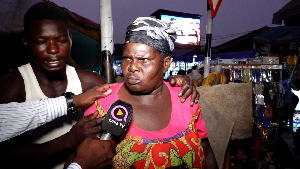The Africa Down Under Conference held in Perth, Australia on the 4th and 5th September attracted a high level delegation from governments and companies in Ghana, Nigeria, Botswana, Namibia, Zambia, South Africa, Democratic Republic of Congo, Morocco, Eritrea and Equatorial Guinea. The conference facilitated a high level of knowledge exchange and provided updates on mining projects and the general investment climate in Africa. Sub-Saharan Africa is increasingly becoming a more attractive and hospitable destination for investors. This was underscored by the influx of Australian Mining Companies in the region.
According to the World Bank, foreign direct investment (FDI) has increased noticeably, with the region attracting $13.8 billion in 2005 and $18.5 billion in 2006. This is attributable to democratic elections, economic stability, more peaceful relations and regulatory reforms. The region’s GDP expanded by 5.6% in 2006, surpassing the 5% mark for the third consecutive year.
The Director General of South Africa’s Department of Minerals and Energy, Mr. Adv Sandile Nogxina pointed out that the investments in Africa underscored the importance of the relationship between Africa and Australia. He spoke about the African Mining Partnership (AMP) which is a project based forum of all African Mining Ministers aimed at driving new partnerships for African development initiatives. In its sixth year, the AMP is finally developing a policy framework aimed at moderating mining legislations to attract further investment in mining and optimise the benefits to Africans.
Ghana was represented by Adamus Resources Ltd, Azumah Resources Ltd, Coffey Mining and African Mining Services. In a speech read on her behalf, Ghana’s Minister of Lands, Forestry and Mines, Hon Esther Obeng Dapaah emphasized that Ghana’s policy initiatives and the legal framework adopted by Government with the passage of a new Minerals and Mining Act, 2006; Act 703 is to promote investment in the mining sector. The new mining law replaced PNDCL 153 of 1986 to reflect international best practices in the industry and also aimed at re-positioning Ghana as a major mining investment destination in Africa.
A major highlight of the two day conference was a panel discussion on community relations and sustainable development in local communities. There was the general perception among African delegates that the mining industry is not contributing enough to community development in Africa. However, Australian companies operating in the region reiterated their commitment to sustainable development initiatives. For example Anvil Mining explained their sustainable development model in the Democratic Republic of Congo. The company hired an NGO to assess community needs and help implement infrastructure projects (Schools, Hospitals etc.). Other models highlighted by companies include community access to infrastructure funding through part ownership of mining projects, micro-financing schemes and other social development programmes.
As a result of the huge capital requirement characteristics of mining ventures, mining development is usually undertaken by companies which have a strong financial backing. In Ghana, most of these companies are foreign owned and they are sometimes distrusted because of perception that foreign owned companies invest in the country to profit from the country’s rich resources. The current state of our mining towns (Obuasi, Tarkwa, Bibiani, Prestea, Bogosu etc) is partly due to the diminishing ability of local governments to provide essential services and lack of proper mechanisms to ensure that royalty disbursements from mining ventures are used for the development of these communities. Alan Stevens (1995) rightly said, “It is an elementary principle of social justice that if wealth is being produced from resources in an area, at a social cost, then everybody should receive some compensatory adjustments to the change of lifestyles.” When economic and social developments do not take place, there are generally feelings of dissatisfaction in the community.
The rules for mineral development should be clarified to communities and investors. For example, it is the responsibility of mining companies to acknowledge the right to adequate compensation to communities that are affected by environmental impacts, such as pollution of water sources from disposing wastes and tailings from the mines. There is also the need for a legislative framework that protects Africa’s interests while providing an attractive, stable and competitive regime for minerals industry investment.
There is the natural tendency by governments with high mineral income to spend or use the improved access to financial markets to borrow more and raise expenditure. In periods of windfall mineral revenues as we are currently experiencing, some African governments even go to the extent of spending on the comfort of government officials while the masses suffer in poverty. The relatively poor economic performance of mineral-rich economies in Africa is due largely to how governments and other groups in society respond to booming or large windfall revenues from mineral production. Governments end up squandering the potential benefits of mineral abundance. With the right policy framework and proper implementation strategies, Africa can improve standards of living of the people by wisely taking advantage of the significant changes taking place in world mining, including the geographical shifts of mining investments.
Business News of Wednesday, 17 September 2008
Source: henry antwi (australia based mining engineer).












